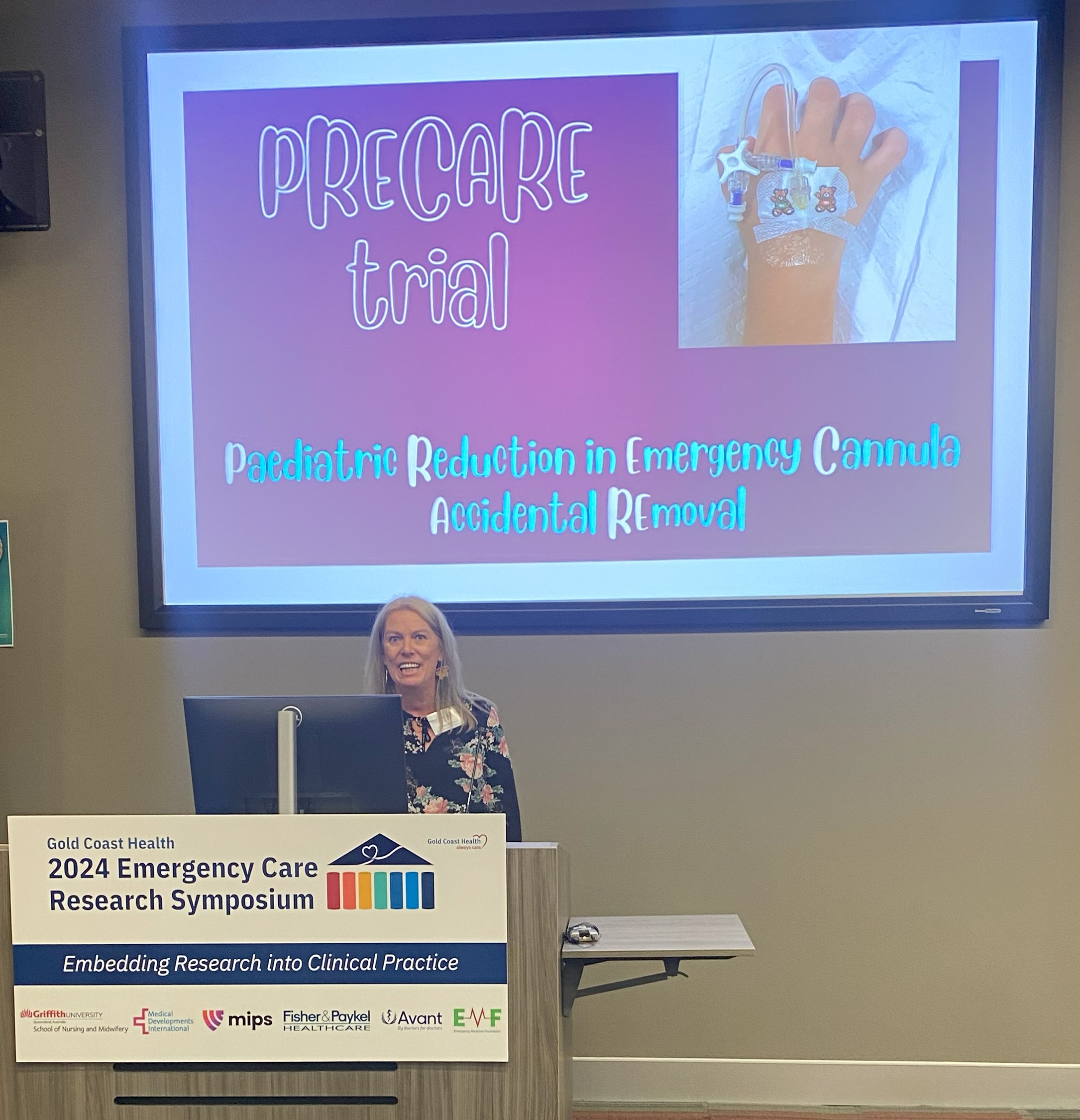
Trial benefits young patients
Having seen first-hand how one in four peripheral intravenous catheters (PIVC) used in treating children were failing and needed to be reinserted, paediatric emergency nurse, Brooke Charters welcomed the opportunity to find a solution.
Ms Charters was the first nurse to become a Principal Investigator on an Emergency Medicine Foundation (EMF) Queensland Research Program grant when it was opened to nurses as lead clinician-researchers in 2018.
“I’ve always worked in paediatric emergency and was frustrated by how many cannulas were lost and how we had to put the children through the trauma of reinserting them,” Ms Charters said.
“I had just come off a shift where this happened when the statewide research manager told me the EMF research funding had opened up to nurses and she was looking for applications.”
Using a three-arm, randomised controlled trial, the study recruited 383 paediatric patients at two regional emergency departments, Logan Hospital and Ipswich Hospital.
Children were randomised to receive PIVCs (also known as cannulas) secured by standard care, advanced dressing or medical grade superglue and advanced dressing.
“Improvements to patient care are the biggest benefits and what motivated me to do the study. The children’s experience is so much better if you don’t have to reinsert the cannula.”
The answer was to secure PIVC with ‘medical grade superglue’ or SecureportIV, used with an integrated dressing securement product, (SorbaView SHIELD).
The impact of the grant from EMF is primarily the positive impact on patient care and secondly the cost savings to the health system, Ms Charters said.
“The main outcome of this trial looked at PIVC failure, with other important questions surrounding cost effectiveness and patient comfort also explored,” she said.
“Improvements to patient care are the biggest benefits and what motivated me to do the study. The children’s experience is so much better if you don’t have to reinsert the cannula.
“We were able to decrease the pain from multiple insertions. We were decreasing the anxiety that was driven by so many cannulations and the families like the product, they were happy.”
She says the change in practice has been well received by clinicians and the team is seeking further funding for an implementation study.
“The only way that I could have done a study this large is through financial support to put the team together, get this study rolling and complete it,” Ms Charters said.
SHARE



